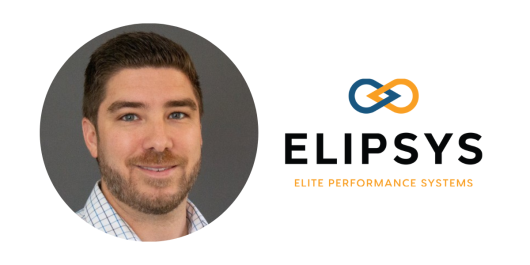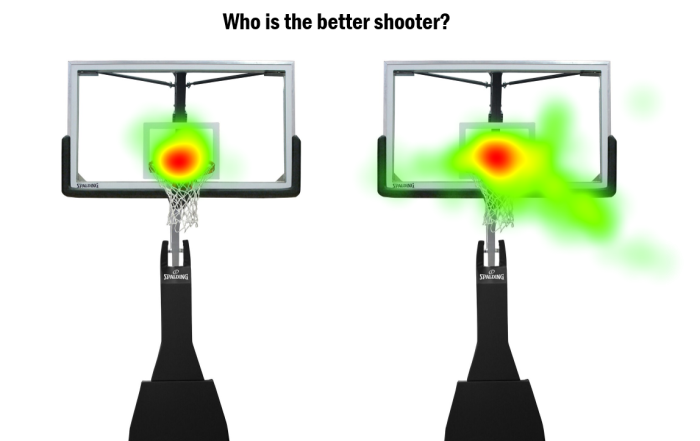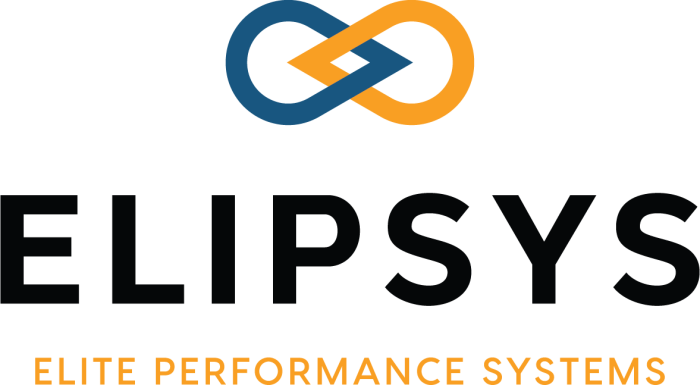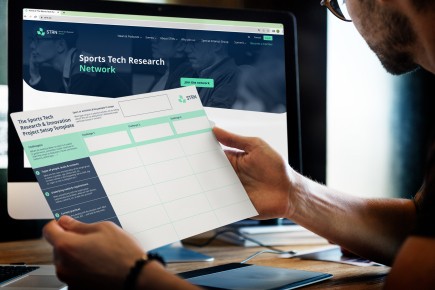Spin-offs in Sports Tech #7: Elipsys
29/03/2022
Share this post

For the 7th article in our series about academic spin-offs in sports tech, we spoke with Adam Kiefer, CEO & Co-founder at Elipsys. Elipsys creates evidence-based learning models that support performance tracking technology to provide players, coaches, and teams with unique performance solutions that accelerate skill learning.
Collaboration with a research institution
Early spin-off process
Elipsys was founded in August 2021 by Adam Kiefer, Ryan MacPherson, and Derek Panchuk with the mission to bring the science of skill acquisition into practice. Adam, CEO at Elipsys, has extensive experience in the domain of movement science & psychology given his role as Assistant Professor at the University of North Carolina at Chapel Hill (UNC), leading the STAR Heel Performance Lab. Ryan, CTO at Elipsys, has the deep technical expertise to convert sports performance science into technological solutions. Finally, Derek is the Chief Innovation Officer. Derek has extensive experience working with elite athletes and coaches as a founder of Chiron Performance and at the Australian Institute of Sport, trying to improve their performance through a variety of scientific methods.
Being very complementary to each other in terms of relevant knowledge and experience, the team was ready to create a spin-off focused on improving sports performance through learning models. As a foundation for the spin-off, they have first been looking at how vision can improve performance. The Quiet Eye technique, coined by Joan Vickers, was validated to enhance the performance of free throws in basketball. This happens by training optimal visual attention control on a continued basis. As a result, more stable eye behavior improves focus, which can improve performance on precision tasks.

About 18 months ago, the 3 co-founders decided to develop an end-to-end platform that integrates the necessary knowledge & expertise, learning models, and technologies to provide athletes with concrete insights and training programs to improve their performance. Elipsys is licensing the IP from UNC around the automation of the acquisition of eye data and pose estimation data, fusing this data, time-synchronizing it, and cleaning it in near real-time. After this, the data is connected to learning models in the cloud which will provide visualized insights for the athlete to work with.
Continued collaboration with research
At Elipsys, they are now finishing the development of their MVP to validate it in professional sports clubs. So far, the collaboration with UNC has been very smooth and useful, according to Adam. Adam is still combining his work as a faculty member at UNC with his work at Elipsys and trying to make them overlap as much as possible, while not engaging in any conflicts of interest.
Furthermore, Adam mentioned that the collaboration between Elipsys and UNC has really been a win-win. Elipsys has access to research facilities & data through their UNC partnership that other startups might not always have. On the other hand, the ecosystem of technology transfer and commercialization at UNC has enabled undergraduate students to experience firsthand how performance science could be brought into practice, and learn from that type of experience. Elipsys has benefitted from a growing institutional collaboration with AWS that has accelerated MVP development, while also providing educational opportunities for students around cutting-edge data analytics and model building for applied sport performance.
Academic support
From our previous interviews, it has become clear that academic support is very important during a theory-to-practice translation project. Fortunately for Adam and his co-founders, UNC is very entrepreneurial and supportive of the spin-off process. For example, they have helped a lot when it comes to the management of conflicts & contracts. Furthermore, they invited the team of Elipsys to a customer discovery program last year, which has helped the team tremendously in clarifying the target market and the associated strategy.
Additionally, although Elipsys is 100% self-funded by the co-founders, UNC has pointed them to funding opportunities and possibilities to get grants. Finally, a Digital Health Venture Studio on campus (which is similar to an incubator) provides an avenue for the researchers to fast-track the creation of their company and lets entrepreneurial researchers come together. All of this of course can speed up the process and increase the likelihood of success.

Key roadblocks in the process of getting their research into the industry
At this stage, Elipsys is facing 2 key challenges. The first one is timing everything correctly. More specifically, managing the timing of MVP development and ongoing operational requirements of the company and deciding which other profiles will need to be involved in the mid-long term are important questions to be answered soon. The second key challenge is figuring out their funding structure. With the objective to finalize their MVP in a few months, the team will be looking to raise pre-seed funding, and so, they are considering the different options to make this possible.
Key lessons learned for researchers & spin-off entrepreneurs
Adam shared 2 key lessons with us, 1 for spin-off entrepreneurs and 1 for universities:
-
For spin-off entrepreneurs, it is critical to assess whether ‘the environment’ is right. The environment includes the academic institution and the restrictions they have or the entrepreneurial programs that are in place within the institution, region, or country. These are factors that cannot be influenced directly, so it’s good to know whether these are in place or not. Additionally, it’s very useful to know the tech transfer people and which opportunities they offer on campus.
-
For universities, it’s crucial to incentivize the creation of spin-offs. If the university does not value the creation of patents or the work on a spin-off to widely implement and bring it into practice, then it will become very difficult to combine the spin-off creation with the ongoing research work. Interestingly, a recent study in ‘Organization Science’ has shown that when academics get involved in commercializing their science, they start working on topics they have not researched before. Their attention turns to issues relevant for solving problems related to the commercialization project. This makes their research more novel and creative, resulting in publications with a higher citation impact. Overall, getting involved in academic entrepreneurship may lead to advances in fundamental science.
Learn more
If you’re interested in learning more about Elipsys and its performance solutions, you can contact Adam directly. If you need an intro, just let us know. They are actively looking to collaborate further with sports clubs and international partners to validate & implement their solutions.
For all other STRN-related questions, you can always find us here. Stay in touch!
Comments
There are no comments yet.




